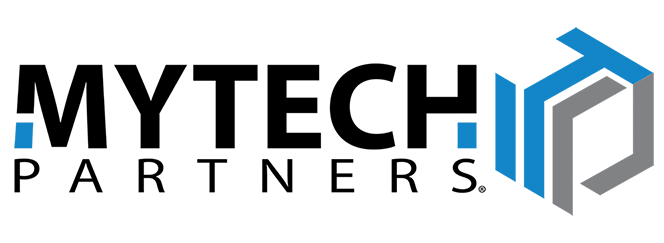To celebrate our 20th year of business, Mytech is looking back on what we’ve learned over the past two decades.
This week, we asked our three owners & founders – Lyf, Nate, and Day – to each talk about how our Mission has evolved from the start. Though they each saw it through a different lens, we weren’t at all surprised at the problem-solving thread that ran through all three stories.
|
|
Lyf Wildenberg | Co-FounderSometimes even a great team starts to misfire. People clash, and effort gets wasted. This is a normal part of growth: as a company changes, team members change with it. With an undefined or outdated mission statement, there’s no guarantee which direction those employees will take, and that opens the company up to risk, conflict, and even problems with company culture or morale. When we invested the time to take a fresh look at our mission, vision, and values, it gave our team members greater clarity about setting objectives and priorities. It aligned the team behind a clear, shared goal. Because they shared a goal, they could move ahead more confidently. Our leadership could also move forward with confidence, both in conflict resolution and in welcoming new team members who shared our refreshed vision. We had to pause, re-evaluate, and work to identify a stronger mission for the company, which may be tough to justify when you have ongoing conflicts within the company. But that time spent helped us to resolve the misfires even faster, and helped us to come out on the other side even stronger. |
Nathan Austin | Co-FounderDefining your mission sounds like it’d be easy, but I remember really struggling. How do you devise a statement that checks all the boxes you want to encompass, while still feeling right? And on top of that, will it sound good? Is it a single, concise sentence that’s easy to understand, remember, and repeat? It took us a long time – countless hours in committees and conference rooms – and all we could manage were long-winded “mission paragraphs” that nobody could manage to repeat or take to heart. Eventually, after much discussion and feedback, we realized that we didn’t need to summarize each and every goal of our organization; we needed to refine our mission down to its very core. I still remember the “Aha!” moment when we asked ourselves if it was really that simple. But it was. Each owner had a single thing – a single phrase – that drove them: Growth (Lyf), Helping (Nate), and Making a Difference (Day). By cutting through all the fluff, we were able to isolate our most important goals and build our company mission within that framework: To Grow, Help, and Make a Difference. The process to get there took years, and we spent too long with mission statements that didn’t fit. But when we did finally make this change, we’d grown as a business and learned more about who we are, which helped us create clarity through our updated mission. Ultimately, even though “sooner is better,” it’s never too late to look back on your organization’s journey, and use that story to unify your vision for the future. |

|

|
Day James | Co-Founder"Some days you eat bear and other days the bear eats you. " My father used to say this occasionally. I had no idea what he was talking about at the time, but it’s true. My lesson learned? Remember our Mission when things go wrong. Because they will. Our 20-year record of critical thinking pays off most of the time. Everything goes according to plan. Accomplished staff are at the ready, client and Mytech strategies are aligned, and our services execute per plan and budget. Everything fires like a dream, day after day. We all eat bear. Enter the unexpected. Something goes awry. We are all, of course, only human. The bear eats us. Even a small disruption can cause a nightmare for our clients. They’re generally used to things working perfectly, and we do our best to deliver. We train, monitor, and prepare for whatever might arise, but we can’t see every possibility coming. That’s what makes internalizing our mission so important: when the bear’s headed our way, we know that we have the right people and plan in place, and we know it’s all held together by our mission To Grow, Help, and Make a Difference. |


